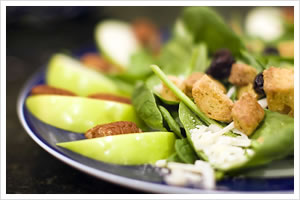Alimentation et exercice
 À tout moment vous exercer, vous le faites pour tenter de rester en bonne santé. Vous savez aussi qu'il faut manger aussi bien, afin que votre corps aura l'énergie il a besoin d'exercer et de maintenir pour les tâches quotidiennes de la vie.
À tout moment vous exercer, vous le faites pour tenter de rester en bonne santé. Vous savez aussi qu'il faut manger aussi bien, afin que votre corps aura l'énergie il a besoin d'exercer et de maintenir pour les tâches quotidiennes de la vie.
Pour tirer le meilleur parti de votre exercice, ce que vous mangez avant et après que la séance d'entraînement vous est très important. Peu importe si vous voulez faire une séance d'entraînement cardio ou un entraînement de résistance, vous devriez toujours faire un point de manger un mélange équilibré de protéines et de glucides.
What makes that determining percentage of carbs and protein you consume is whether or not you are doing cardio or resistance exercise and the intensity level that you plan to work at. The ideal time for you to eat your pre workout meal is an hour before you start. If you plan to work at a low intensity level, you should keep your preworkout meal down to 200 calories or so.
If you plan to exercise at a high level of intensity, you will probably need your meal to be between 4,000 and 5,000 calories. Those of you who are doing a cardio session will need to consume a mix of 2/3 carbs and 1/3 protein. Doing so will give you longer sustained energy from the extra carbs with enough protein to keep your muscle from breaking down while you exercise.
For resistance exercise, you’ll need to eat a mix of 1/3 carbs and 2/3 protein, as this will help you get plenty of energy from the carbs to perform each set you do and the extra protein will help keep muscle breakdown to a minimum while you exercise. Eating after you exercise is just as important as your pre workout meal. À tout moment vous exercer, whether its cardio or resistance, you deplete energy in the form of glycogen.
The brain and central nervous system rely on glycogen as their main source of fuel, so if you don’t replace it after you exercise, your body will begin to break down muscle tissue into amino acids, and then convert them into usable fuel for the brain and the central nervous system.
Keep in mind that mostly during resistance exercise, you’ll break down muscle tissue by creating micro tears. Ce que cela signifie, is that after a workout, your muscles will instantly go into repair mode. Protein is the key here for muscle repair, as you don’t want muscle breaking down even further to create fuel instead of lost glycogen. Once you have finished a cardio session, you’ll need to consume mainly carbohydrates, preferably those with high fiber. Rice, oatmeal, whole wheat pasta, and northern fruits are excellent sources.
Aussi, try to consume 30 – 50 grams of three types of carbs after you exercise. After your cardio workout, it is fine to eat within 5 – 10minutes. Once you’ve finished a resistance workout, you will need to consume a combination of carbs and protein. Unlike cardio workouts, resistance workouts will break down muscle tissue by creating micro tears. You’ll need protein as this happens to build up and repair these tears so that the muscle can increase in size and strength.
The carbs will not only replace the lost muscle glycogen, but will also help the protein get into muscle cells so it can synthesize into structural protein, or the muscle itself. After your resistance exercise, you should wait up to 30 minutes before you eat, so that you won’t take blood away from your muscles too fast. The blood in your muscles will help the repair process by removing the metabolic waste products.



